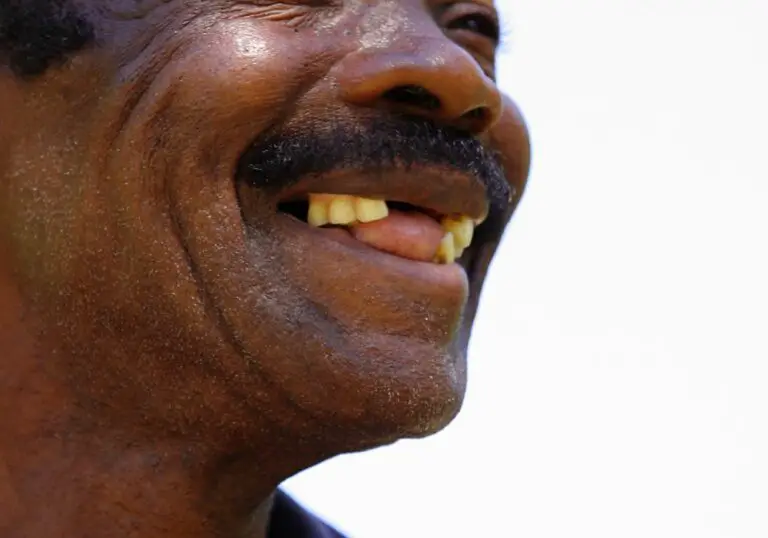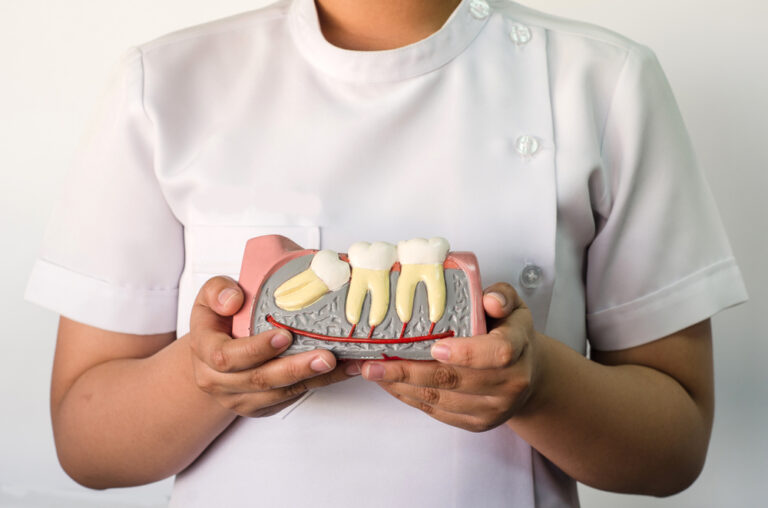Wisdom teeth removal is a common procedure that many people undergo. However, it can be quite painful, and some people may experience more pain than others. If you’re wondering why you’re in so much pain after wisdom teeth removal, you’re not alone.
There are several reasons why you may be experiencing pain after wisdom teeth removal. It’s important to understand the physical after-effects of surgery and the healing process after wisdom teeth removal. Additionally, pain management strategies can help alleviate some of the discomfort. However, if your pain is severe or doesn’t improve over time, it’s important to seek medical attention.
Key Takeaways
- Pain after wisdom teeth removal is common, but it can be managed with pain management strategies.
- Understanding the physical after-effects of surgery and the healing process can help you better cope with pain.
- If your pain is severe or doesn’t improve over time, it’s important to seek medical attention.
Understanding Wisdom Teeth Removal

Wisdom teeth, also known as third molars, are the last set of teeth to emerge in the back of the mouth. They typically appear between the ages of 17 and 25, but not everyone develops them.
In some cases, wisdom teeth can cause problems such as pain, infection, or damage to adjacent teeth. In such cases, a dentist or oral surgeon may recommend wisdom teeth removal.
The procedure involves removing one or more wisdom teeth, usually under local anesthesia or sedation. The recovery period can vary from person to person, but it typically takes about a week to 10 days to fully heal.
During the recovery period, it is common to experience some pain and swelling. This is a normal part of the healing process, and there are several ways to manage the discomfort.
Some tips for managing pain after wisdom teeth removal include:
- Taking pain medication as prescribed by your dentist or oral surgeon
- Applying ice packs to the affected area to reduce swelling
- Eating soft foods and avoiding hard, crunchy, or spicy foods that can irritate the extraction site
- Avoiding smoking, as it can delay the healing process and increase the risk of complications such as dry socket
It is also important to follow your dentist or oral surgeon’s instructions for caring for the extraction site, such as rinsing with salt water and avoiding brushing or flossing near the area for the first few days.
Overall, wisdom teeth removal is a common and safe procedure that can help prevent future dental problems. If you are experiencing pain or other issues related to your wisdom teeth, talk to your dentist or oral surgeon to determine if removal is necessary.
Physical After-Effects of Surgery
Pain and Swelling
It is normal to experience pain and swelling after wisdom teeth removal surgery. The level of discomfort varies from person to person, but it usually peaks around the third day after the surgery. Pain can be managed with over-the-counter painkillers or prescription medication prescribed by your dentist or oral surgeon. Applying ice packs to the affected area can also help reduce swelling and discomfort.
Bruising and Discoloration
Bruising and discoloration are also common after-effects of wisdom teeth removal. They usually appear around the second or third day after the surgery and can last for up to two weeks. The severity of bruising and discoloration varies from person to person and can be influenced by factors such as age, gender, and the complexity of the surgery. Applying a warm compress to the affected area can help reduce bruising.
It is important to follow the post-operative instructions provided by your dentist or oral surgeon to minimize the physical after-effects of wisdom teeth removal surgery. If you experience severe or prolonged pain, swelling, or bleeding, contact your dentist or oral surgeon immediately.
Healing Process After Wisdom Teeth Removal

After wisdom teeth removal, the healing process begins. This process can take up to two weeks, and it is important to take care of the extraction site during this time to ensure proper healing. The healing process involves several stages, including blood clot formation, bone and gum healing.
Blood Clots and Dry Socket
After wisdom teeth removal, the body forms blood clots at the extraction site to help protect the wound and promote healing. It is important to take care of these blood clots, as they can become dislodged and lead to a condition called dry socket. Dry socket is a painful condition that occurs when the blood clot at the extraction site becomes dislodged, exposing the bone and nerves underneath.
To prevent dry socket, avoid smoking, drinking through a straw, or spitting for at least 24 hours after surgery. Also, avoid hard or crunchy foods for a few days and rinse your mouth with salt water to help keep the extraction site clean.
Bone and Gum Healing
After the blood clot forms, the body begins to heal the bone and gum tissue around the extraction site. The gum tissue will begin to grow over the extraction site, and the bone will begin to fill in the space left by the removed tooth.
To promote bone and gum healing, it is important to follow the aftercare instructions provided by your dentist or oral surgeon. This may include taking pain medication, using ice packs to reduce swelling, and eating a soft diet for a few days.
In conclusion, the healing process after wisdom teeth removal is an important time for proper recovery. By taking care of the blood clots and promoting bone and gum healing, you can ensure a speedy and successful recovery.
Pain Management Strategies
Medication and Remedies
After wisdom teeth removal, it is common to experience pain and discomfort. To manage the pain, your dentist may prescribe pain medication, such as ibuprofen or acetaminophen. These medications can help reduce swelling and alleviate pain.
It is important to follow your dentist’s instructions when taking pain medication. Do not exceed the recommended dosage and do not mix medications unless instructed to do so by your dentist. If you experience any side effects, such as nausea or dizziness, contact your dentist immediately.
In addition to medication, there are several home remedies that can help manage pain. Applying an ice pack to the affected area can help reduce swelling and numb the pain. A warm saltwater rinse can also help alleviate pain and promote healing.
Rest and Recovery
Rest and recovery are essential for managing pain after wisdom teeth removal. It is important to avoid strenuous activities for at least 24 hours after the procedure. Resting and keeping your head elevated can help reduce swelling and promote healing.
Avoid smoking and drinking through a straw, as these actions can dislodge the blood clot and delay healing. Stick to soft foods and avoid crunchy or hard foods that can irritate the affected area.
It is also important to maintain good oral hygiene by gently brushing your teeth and using a saltwater rinse to keep the area clean. If you experience any excessive bleeding or severe pain, contact your dentist immediately.
By following these pain management strategies, you can help alleviate pain and promote healing after wisdom teeth removal.
When to Seek Medical Attention

It is normal to experience some pain and discomfort after wisdom teeth removal. However, if you are in severe pain or experiencing other symptoms, it is important to seek medical attention. Here are some signs that you should contact your dentist or oral surgeon:
Persistent Pain
If you are experiencing severe or persistent pain after wisdom teeth removal, it may be a sign of a complication. Pain that lasts longer than a few days or is not relieved by over-the-counter pain medication should be evaluated by a dental professional. Your dentist or oral surgeon may recommend further treatment or prescribe stronger pain medication.
Signs of Infection
Infection is a possible complication of wisdom teeth removal. Signs of infection include:
- Fever
- Swelling
- Redness or warmth around the surgical site
- Pus or discharge from the surgical site
- Foul taste or odor in the mouth
If you experience any of these symptoms, contact your dentist or oral surgeon immediately. In some cases, antibiotics or other treatment may be necessary to control the infection.
It is important to follow your dentist or oral surgeon’s post-operative instructions carefully to minimize the risk of complications. If you have any concerns or questions about your recovery, do not hesitate to contact your dental professional for guidance.
Frequently Asked Questions
How long does pain after wisdom tooth extraction last?
Pain after wisdom tooth extraction can last for several days to a week or more. It is normal to experience some discomfort and swelling during the healing process. However, if the pain persists for an extended period, it is advisable to consult your dentist.
Pain where wisdom tooth was removed years later
It is uncommon to experience pain in the area where a wisdom tooth was removed years later. If you are experiencing pain, it is advisable to consult your dentist to determine the cause of the pain and the appropriate treatment.
Jaw pain 3 weeks after wisdom tooth extraction
Jaw pain 3 weeks after wisdom tooth extraction is not uncommon. It can be caused by the healing process, inflammation, or infection. If the pain persists, it is advisable to consult your dentist.
How to treat nerve pain after tooth extraction
Nerve pain after tooth extraction can be treated with pain medication or anti-inflammatory drugs. If the pain persists, it is advisable to consult your dentist to determine the cause of the pain and the appropriate treatment.
Tooth extraction pain after 7 days
Tooth extraction pain after 7 days is not uncommon. It can be caused by the healing process, inflammation, or infection. If the pain persists, it is advisable to consult your dentist.
Is it normal to have extreme pain after wisdom teeth removal?
It is normal to experience some discomfort and swelling after wisdom teeth removal. However, extreme pain is not normal and may indicate an infection or other complication. If you are experiencing extreme pain, it is advisable to consult your dentist.






